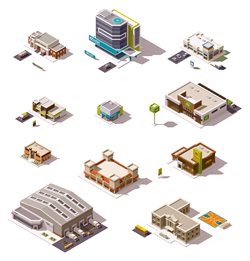(7/4/2022)
Hospitals have always played an essential role in supporting and caring for our communities. They often act as the place where life begins and ends and provide a healing environment for challenges in between. Especially in smaller communities, hospitals are often some of the largest employers and are geographically centered. Hospitals can also serve a greater purpose by supporting community-wide health initiatives.

With all the work hospitals do for communities, they can unfortunately become overwhelmed with individuals requiring care. However, by promoting community health and preventive care through resources and education, hospitals can lessen the community’s need for individual hospital care. Essentially, by supporting an environment outside the hospital walls in which people can heal better and focus on wellness, hospitals can focus their time and resources inside the buildings on those who need the most critical emergency care. Through active participation in the community, hospitals support inclusive community health efforts.
Identify community needs.
Understanding the health issues impacting your community is the first step in creating meaningful change. This helps hospitals adequately respond to the social determinants of health that contribute to community-wide health inequities.
Hospitals can gain more insight into their communities by establishing relationships with community leaders, taking part in community events and seeking feedback from community members. Patient and family advisory councils also help keep hospitals updated on patient and community needs. Additionally, every hospital conducts a community health needs assessment every few years, which provides an opportunity to gather relevant data about the areas that require the most assistance.
At some Medxcel facilities, we have been able to open spaces within hospitals for community use. It's a great way to bring people together who know each other because they usually have family and friends working at the hospital itself.
Communicating with members in the community builds a strong understanding of who is seeking care, who is providing care, and how the hospital can support them. For example, identifying household caregivers and educating them about available services will benefit the entire household.
Build trust.
To create a strong connection with the community, the hospital must earn trust by working to strengthen relationships with community members. Ultimately, hospitals do need financial support from the community, and by forging a strong connection with the community, members will better understand the value of their hospital.
Social media creates an easy way of reaching out to people and strengthening relationships. Whether it be creating a podcast or posting on Facebook, hospitals can help spread the word about resources available in the community. Short video explanations can help educate people on how to navigate the intricacies of the healthcare system and understand current health issues in their community.
Another important aspect of building trust is reaching vulnerable parts of the community. People often distrust healthcare and resist treatment because they are worried about not being able to afford it, especially those who are uninsured. Establishing ways for them to access medications or healthy food will help develop trust, which will encourage them to come in for care.
Breaking down language and physical barriers is another important aspect of establishing trust. Help people learn how to get to the hospital or a doctor's appointment on public transportation and ensure that your hospital has translators available. Hiring people who speak different languages and come from different cultures creates a workforce that represents your community and promotes trust. Cultural competency training is also helpful for ensuring cultural sensitivity.
Educate, support and advocate for your community.
Getting involved often consists of both individual and organizational efforts. From volunteering to implementing new programs, your hospital can act out its values and mission and support community health equity and inclusion.
This begins internally. At Medxcel, we take time to train executives who normally work in acute care environments about what it means to be a part of community health equity. This is a different model of care than acute settings and requires different, but complementary, skills.
Other ideas for responding to community health issues at an organizational level include:
- Partnering with local organizations to establish programs that create solutions, from diabetes prevention to mental health training
- Creating more convenient ways of receiving care, such as drive-up services for vaccines and testing
- Supporting the community through natural disasters or epidemics by using available spaces around town to provide additional necessary healthcare services
- Working with local medical and dental schools to provide free care for vulnerable community members
- Establishing a close-knit relationship with the fire and the police department and supporting each other
- Encouraging community involvement through participation in events, such as blood drives and fundraisers
- Donating to local organizations, such as food banks
- Advocating for resources to help improve health outcomes at a systemic level
The goal is to support inclusion across the system and shape healthcare to improve community care rather than waiting for problems to arise. A strong hospital is one that invests in its community just as its community invests in it, leading to healthier outcomes overall.
To learn more about the importance of actively participating in your community, check out Season 2, Episode 8 of our podcast,
Outside the Patient’s Door: “
Partnering with Your Community with Pamela Dunley and Maureen Larkins.”